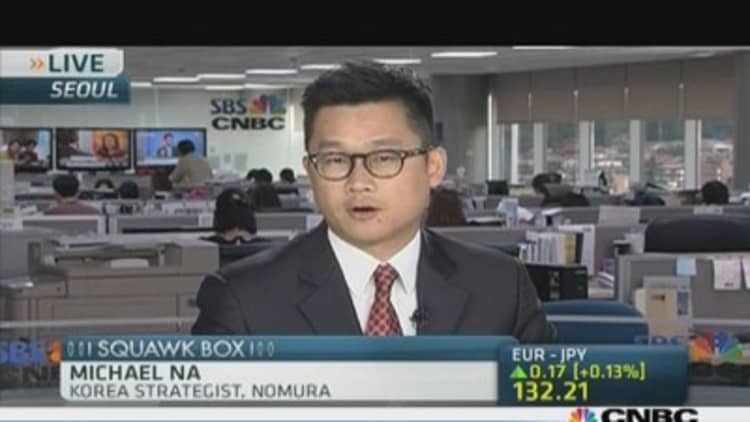Investors appear to have had a sudden change of heart – emerging market equities have come back with a vengeance over the past three weeks, outperforming global stocks.
The MSCI Emerging Markets Index has risen 9 percent since late August, almost double the 4.6 percent gain in the MSCI World Index over the same period, on improved risk appetite as markets come to terms with the idea of reduced U.S. monetary stimulus, as well as better-than-expected economic data out of China and easing tensions in Syria.
Indonesia's Jakarta Composite, for example, which suffered an over 22 percent drop from its peak on 21 May to the low on 28 August, has since recovered 12 percent. While, India's Nifty, which lost 14 percent during the same period, has recovered around 10.5 percent.
(Read More: Emergingmarkets: The comeback kid of 2014?)
But, as the Federal Reserve gears up to announce whether it will taper its $85-billion-a-month asset-purchase program on Wednesday, market watchers are growing increasingly skeptical on the sustainability of the turnaround.
"The structural reason for the exit from these markets has been pushed aside in the past few weeks with a return of capital inflows seeking undervalued risky assets in the chase for yield," said Kelly Teoh, market strategist at IG Markets. "There are still issues that need to be addressed."
According to Uwe Parpart, head of research at Reorient Financial Markets, the recent recovery is a "very temporary pause" in the de-rating of emerging market assets.
"Keep in mind that in reality, no liquidity has actually been withdrawn, it's just been just talked about," said Parpart.
"After the [Federal Open Market Committee meeting], when tapering actually starts happening and extends over a period, between now and next July, under those circumstances there's no question emerging markets will come under pressure," he said.
(Read More: Fed can't afford toignore emerging markets: Lagarde)
Mark Matthews, head of research, Asia at Bank Julius Baer, agrees that the recent rally is likely to fade given economic fundamentals in domestically-driven markets such as India and Indonesia remain weak.

"Their stock markets won't continue to rally. Assuming tapering is $10-$15 billion, they will likely move sideways," Matthews said.
However, he noted that cyclical markets such as South Korea and Taiwan, which are correlated with global growth, will continue to perform well. The benchmark KOSPI and TAIEX have risen 6.4 percent and 5.5 percent, respectively, since late-August.
In contrast, Jessica Hinds, economist at Capital Economics, expects enthusiasm towards emerging market equities to grow in the coming months.
(Read More: Goldmantips playing China's economic rebound)
"Investors have now acclimatized to a shift in U.S. monetary policy and have recognized that the Fed will probably reduce its stimulus. Furthermore, investors may be lured back to emerging market equities because, with the exception of those in Latin America, valuations are now looking fairly attractive relative to developed market equities," she said.
—By CNBC's Ansuya Harjani; Follow her on Twitter @Ansuya_H


